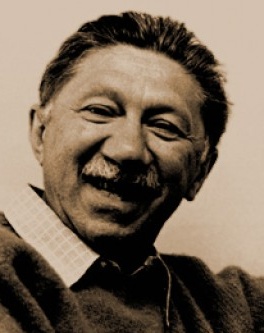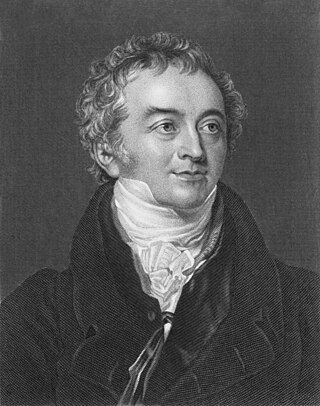
Aristotle was an Ancient Greek philosopher and polymath. His writings cover a broad range of subjects including physics, biology, zoology, metaphysics, logic, ethics, aesthetics, poetry, drama, music, rhetoric, psychology, linguistics, economics, politics, meteorology, geology, and government. As the founder of the Peripatetic school of philosophy in the Lyceum in Athens, he began the wider Aristotelian tradition that followed, which set the groundwork for the development of modern science.

Personality psychology is a branch of psychology that examines personality and its variation among individuals. It aims to show how people are individually different due to psychological forces. Its areas of focus include:
The Human Potential Movement (HPM) arose out of the counterculture of the 1960s and formed around the concept of an extraordinary potential that its advocates believed to lie largely untapped in all people. The movement takes as its premise the belief that through the development of their "human potential", people can experience a life of happiness, creativity, and fulfillment, and that such people will direct their actions within society toward assisting others to release their potential. Adherents believe that the collective effect of individuals cultivating their own potential will be positive change in society at large.
Hylomorphism is a philosophical doctrine developed by the Ancient Greek philosopher Aristotle, which conceives every physical entity or being (ousia) as a compound of matter (potency) and immaterial form (act), with the generic form as immanently real within the individual. The word is a 19th-century term formed from the Greek words ὕλη and μορφή.

Maslow's hierarchy of needs is an idea in psychology proposed by American psychologist Abraham Maslow in his 1943 paper "A Theory of Human Motivation" in the journal Psychological Review. Maslow subsequently extended the idea to include his observations of humans' innate curiosity. His theories parallel many other theories of human developmental psychology, some of which focus on describing the stages of growth in humans. The theory is a classification system intended to reflect the universal needs of society as its base, then proceeding to more acquired emotions. The hierarchy of needs is split between deficiency needs and growth needs, with two key themes involved within the theory being individualism and the prioritization of needs. While the theory is usually shown as a pyramid in illustrations, Maslow himself never created a pyramid to represent the hierarchy of needs. The hierarchy of needs is a psychological idea and also an assessment tool, particularly in education, healthcare and social work. The hierarchy remains a popular framework in sociology research, including management training and higher education.
Eudaimonia is a Greek word literally translating to the state or condition of 'good spirit', and which is commonly translated as 'happiness' or 'welfare'.

Psychology is an academic and applied discipline involving the scientific study of human mental functions and behavior. Occasionally, in addition or opposition to employing the scientific method, it also relies on symbolic interpretation and critical analysis, although these traditions have tended to be less pronounced than in other social sciences, such as sociology. Psychologists study phenomena such as perception, cognition, emotion, personality, behavior, and interpersonal relationships. Some, especially depth psychologists, also study the unconscious mind.

Abraham Harold Maslow was an American psychologist who created Maslow's hierarchy of needs, a theory of psychological health predicated on fulfilling innate human needs in priority, culminating in self-actualization. Maslow was a psychology professor at Brandeis University, Brooklyn College, New School for Social Research, and Columbia University. He stressed the importance of focusing on the positive qualities in people, as opposed to treating them as a "bag of symptoms". A Review of General Psychology survey, published in 2002, ranked Maslow as the tenth most cited psychologist of the 20th century.

Humanistic psychology is a psychological perspective that arose in the mid-20th century in answer to two theories: Sigmund Freud's psychoanalytic theory and B. F. Skinner's behaviorism. Thus, Abraham Maslow established the need for a "third force" in psychology. The school of thought of humanistic psychology gained traction due to key figure Abraham Maslow in the 1950s during the time of the humanistic movement. It was made popular in the 1950s by the process of realizing and expressing one's own capabilities and creativity.
Psychosynthesis is an approach to psychology that expands the boundaries of the field by identifying a deeper center of identity, which is the postulate of the Self. It considers each individual unique in terms of purpose in life, and places value on the exploration of human potential. The approach combines spiritual development with psychological healing by including the life journey of an individual or their unique path to self-realization.
A need is dissatisfaction at a point of time and in a given context. Needs are distinguished from wants. In the case of a need, a deficiency causes a clear adverse outcome: a dysfunction or death. In other words, a need is something required for a safe, stable and healthy life while a want is a desire, wish or aspiration. When needs or wants are backed by purchasing power, they have the potential to become economic demands.
In philosophy, potentiality and actuality are a pair of closely connected principles which Aristotle used to analyze motion, causality, ethics, and physiology in his Physics, Metaphysics, Nicomachean Ethics, and De Anima.
The theory of positive disintegration (TPD) is an idea of personality development developed by Polish psychologist Kazimierz Dąbrowski. Unlike mainstream psychology, the idea views psychological tension and anxiety as necessary for personal growth. These "disintegrative" processes are "positive", whereas people who fail to go through positive disintegration may stop at "primary integration", possessing individuality but nevertheless lacking an autonomous personality and remaining impressionable. Entering into disintegration and subsequent higher processes of development continues through developmental potential, including over-excitability and hypersensitivity.
The unmoved mover or prime mover is a concept advanced by Aristotle as a primary cause or "mover" of all the motion in the universe. As is implicit in the name, the unmoved mover moves other things, but is not itself moved by any prior action. In Book 12 of his Metaphysics, Aristotle describes the unmoved mover as being perfectly beautiful, indivisible, and contemplating only the perfect contemplation: self-contemplation. He equates this concept also with the active intellect. This Aristotelian concept had its roots in cosmological speculations of the earliest Greek pre-Socratic philosophers and became highly influential and widely drawn upon in medieval philosophy and theology. St. Thomas Aquinas, for example, elaborated on the unmoved mover in the Quinque viae.
Self-actualization, in Maslow's hierarchy of needs, is the highest level of psychological development, where personal potential is fully realized after basic bodily and ego needs have been fulfilled.

The following outline is provided as an overview of and topical guide to humanism:
Personal development or self improvement consists of activities that develop a person's capabilities and potential, build human capital, facilitate employability, and enhance quality of life and the realization of dreams and aspirations. Personal development may take place over the course of an individual's entire lifespan and is not limited to one stage of a person's life. It can include official and informal actions for developing others in roles such as teacher, guide, counselor, manager, coach, or mentor, and it is not restricted to self-help. When personal development takes place in the context of institutions, it refers to the methods, programs, tools, techniques, and assessment systems offered to support positive adult development at the individual level in organizations.

The word energy derives from Greek ἐνέργεια, which appears for the first time in the 4th century BCE works of Aristotle.
Potential generally refers to a currently unrealized ability. The term is used in a wide variety of fields, from physics to the social sciences to indicate things that are in a state where they are able to change in ways ranging from the simple release of energy by objects to the realization of abilities in people. The philosopher Aristotle incorporated this concept into his theory of potentiality and actuality, a pair of closely connected principles which he used to analyze motion, causality, ethics, and physiology in his Physics, Metaphysics, Nicomachean Ethics, and De Anima, which is about the human psyche. That which is potential can theoretically be made actual by taking the right action; for example, a boulder on the edge of a cliff has potential to fall that could be actualized by pushing it over the edge. Several languages have a potential mood, a grammatical construction that indicates that something is potential. These include Finnish, Japanese, and Sanskrit.
Metamotivation is a term coined by Abraham Maslow to describe the motivation of people who are self-actualized and striving beyond the scope of their basic needs to reach their full potential. Maslow suggested that people are initially motivated by a series of basic needs, called the hierarchy of needs. Maslow states, "Self-actualizing people are gratified in all their basic needs ". Once a person has successfully navigated the hierarchy of needs thus satisfying all their basic needs, Maslow proposed they then travel "a path called growth motivation".





